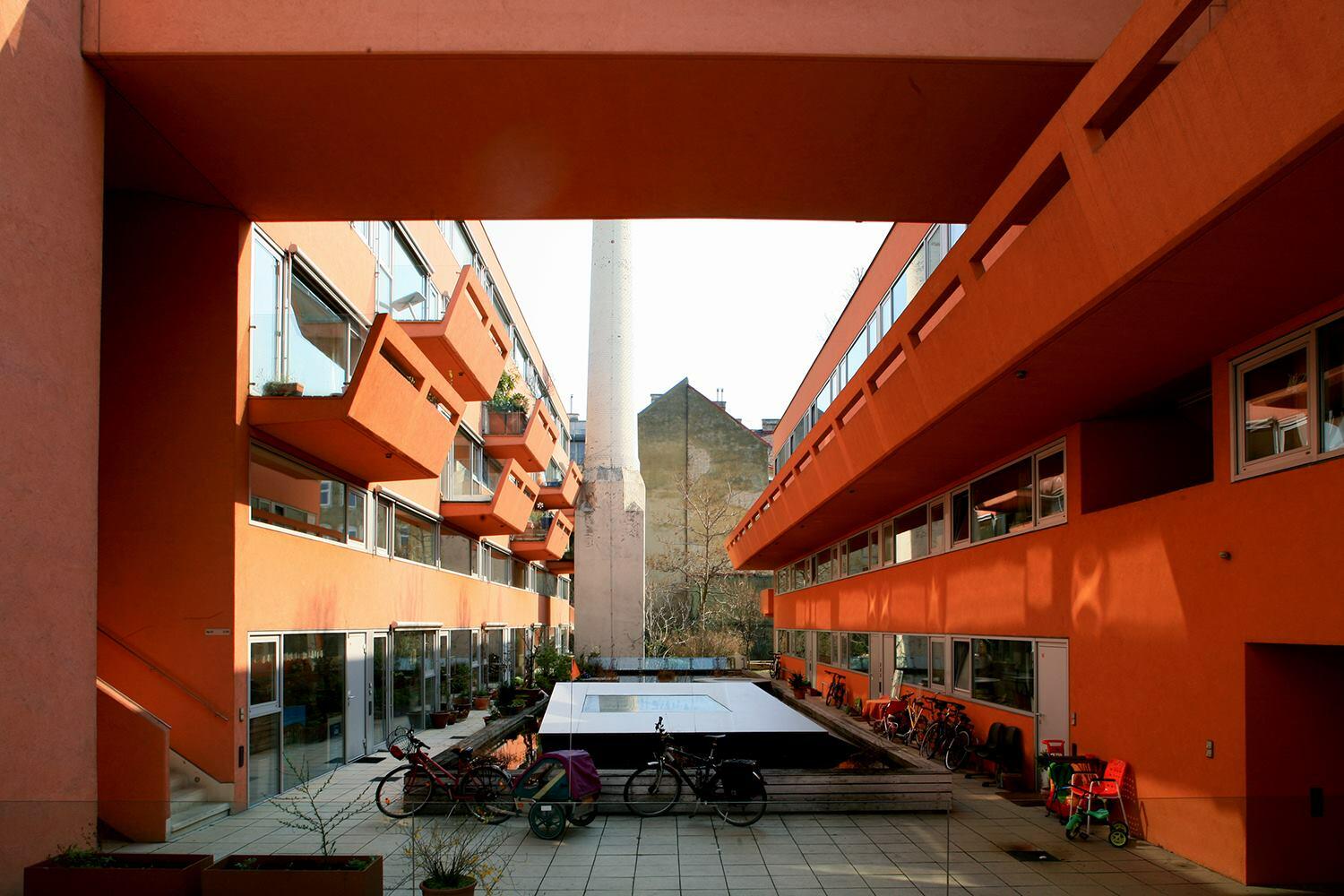
07:00 PM - 10:00 PM
About the event
Urban Planning, Dissensual Politics and Popular Agency
The worldwide crisis of a dramatic lack of affordable housing — even in affluent cities such as Vancouver and Vienna — is part of a larger urban crisis that is based on speculation of urban land, the re-distribution of wealth from the poor to the rich, and on the collectivization of losses and the privatization of gains characteristic of neoliberalism.
Therefore, a politics aiming at the right to affordable housing for all is necessary in this moment. And housing, of course, is always more thanitself — for we are housed in cities and thus also in infrastructural networks, power relations, public spaces, all of which are under pressure from market appropriation. In this talk, Gabu Heindl, architect and urban planner from Vienna, Austria, proposes equality, justice and the enabling of political dissensus as parameters for city planning.
Using Vienna as a case study, this lecture explores the relationship of affordable housing to urban planning politics and will discuss historic and current housing policies, not least in a critical cross-analysis with the Vancouver case. Touching upon the re-articulated model function of 1920s Red Vienna, Heindl will present her approach to combining strong claims (Setzungen) in public planning with a critique of paternalistic governance and with maintaining zones of contact with popular agency.
More information on the Vienna Model: http://www.vienna-model.at/en/
SPEAKER
Gabu Heindl is an architect/urban planner and theorist in Vienna, Austria. Her practice (GABU Heindl Architecture) specializes in public interventions, cultural and social buildings, urban research and planning. Her current research focuses on a post-foundational theory of planning politics with regard to radical democracy in contemporary urbanism. Gabu currently teaches in the Institute for Architecture at the Academy of Fine Arts in Vienna. Since 2013, she has been president of ÖGFA (Austrian Society for Architects) and a lecturer at the Institute for Art and Architecture at the Academy of Fine Arts. She studied both in Vienna and Tokyo and did post-doctoral work at Princeton University as a Fulbright Scholar.
Gabu’s practice also includes the curation of exhibitions and symposia on issues of politics in architecture and urban planning. She is the editor of Just Architecture (ERA21, 2012), Arbeit Zeit Raum (turia+kant, 2008), and anthology on the relationship of post-Fordist work and architecture, and theco-editor of Position Alltag – Architecture in the Context of Everyday Life (HDA Verlag, 2009). She has published in numerous architectural journals such as JAE, Umbau, ARPA, Volume, and derive.
MODERATORS
Sabine Bitter and Jeff Derksen are members of the research collective Urban Subjects that is based in Vancouver and Vienna (with the artist Helmut Weber). Urban Subject’s research and projects have ranged from a historical study of autogestion in New Belgrade, self-organized housing and dual power in Caracas, Venezuela, studies of the effects of mega-events on cities such as Vancouver and Milan, and the artistic representation of militancy. They have exhibited in, and curated, shows across Europe and North America. Their publications include Autogestion, or Henri Lefebvre in New Belgrade (Fillip/Sternberg Press, 2009), Momentarily: Learning from Mega-events (Western Front, 2011) and The Militant Image Reader (Camera Austria, 2016). Sabine Bitter works in the School for the Contemporary Arts at SFU and Jeff Derksen works in the Department of English.
RESPONDENTS
Stephanie Allen has developed real estate for almost 15 years, with focus on multi-family residential projects in the private and public sector in BC, Alberta, and Arizona. She holds an undergraduate degree in Business Administration, is a certified Project Management Professional, and is currently completing her graduate degree in Urban Studies at SFU. Her research focuses on affordable housing practice and policy though the lens of equity and diversity, especially as it relates to racialized and marginalized communities.
Matt Hern has lived and worked in East Vancouver, Coast Salish Territories for the past two and a half decades with his partner and daughters. He has founded and directed the Purple Thistle Centre, Car-Free Vancouver Day, Groundswell: Grassroots Economic Alternatives and 2+10 Industries among many other community projects. He holds a doctorate in Urban Studies and is the author of What a City Is For: Remaking the Politics of Displacement (MIT Press, 2016) and Common Ground in a Liquid City: Essays in Defence of an Urban Future (AK Press, 2010), amongst other titles. He currently teaches in SFU's Urban Studies department.
Wendy Pedersen is a community organizer, author and researcher who is currently the Coordinator of the DTES SRO Collaborative Society that works on habitability campaigns with Tenant Organizers to preserve their low-income rentals. She has long been an eloquent advocate for housing justice in Vancouver’s Downtown Eastside.
This event is in conjunction with The Vienna Model: Housing for the Twenty-First Century, Museum of Vancouver, May 17-July 16, 2017.
The Vienna Model: Housing for the Twenty-First-Century City shines the spotlight on sixty prototypical projects from the last hundred years, with a special focus on the public art that has complemented the city’s housing since the First Republic.
Today about 60% of the Viennese population live in municipally built, owned or managed housing and the city clearly controls its housing market. This is a different condition than exists in the United States where, in most cases, the private market is the provider of housing and is relied upon even to rehabilitate existing neighborhoods and create new communities.
Image: Sargfabrik, 1998
Location: SFU Woodwards
49.282372, -123.10858
SFU Woodwards
149 W. Hastings St
Vancouver, BC
Canada